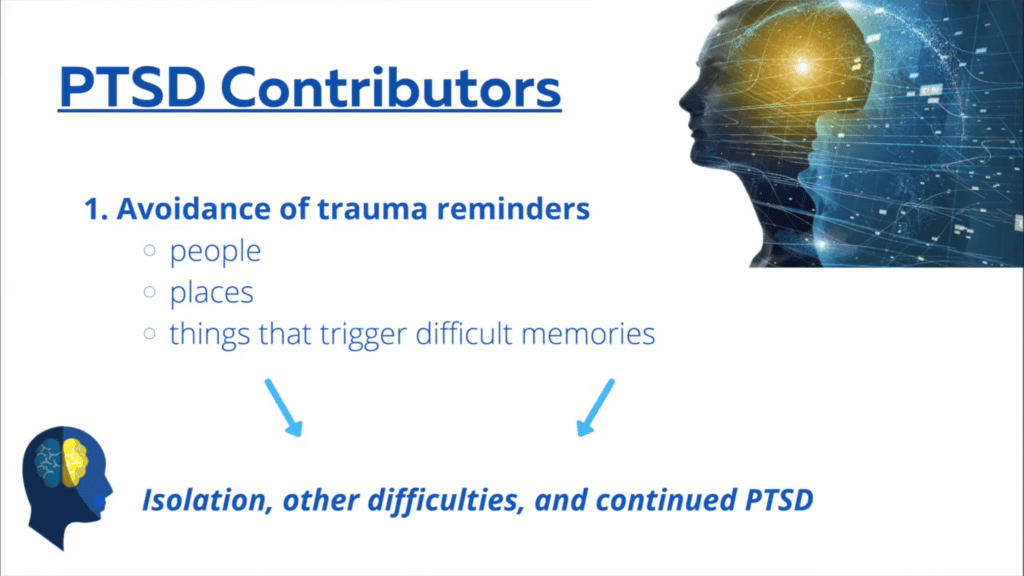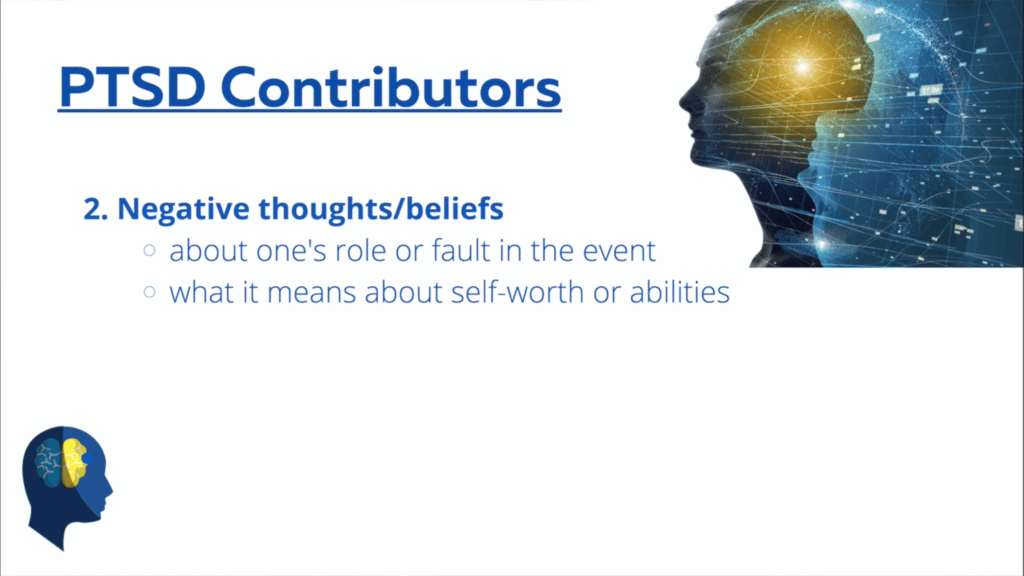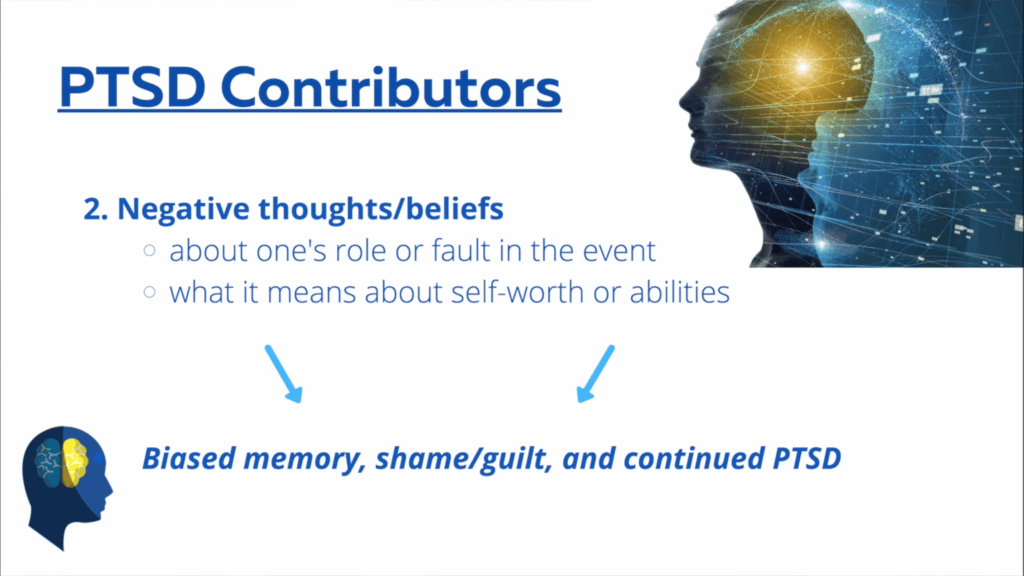Experiencing posttraumatic stress after a traumatic event can be extremely difficult.
There are some myths about how often posttraumatic stress disorder (PTSD) occurs and how it occurs. For instance, not everyone who experiences a traumatic event will go on to experience PTSD.
Although we still do not understand enough about which factors show people will be at risk for PTSD after they experience a traumatic event, this clip discusses some research-based reasons why PTSD may occur as individuals cope with trauma after traumatic events.
Check out our video on trauma and PTSD below! If you are interested in this topic or if you experience PTSD, there are some great books to check out. One book by Bessel van der Kolk discusses how traumatic stress can alter brain functioning and remain for such long periods when untreated. Another book by Bruce Perry and Oprah Winfrey describes how trauma can affect individuals when experienced in childhood and has a great interview with testimonials from Oprah Winfrey.
There’s also a great book by George Bonanno that is hot off the presses that I recommend. His book gives the latest on resilience from trauma or traumatic events.
Welcome back, I’m Dr. Matt B with your Emotional Minutes. Today we are talking about traumatic stress or post-traumatic stress disorder. Post-traumatic stress disorder is often referred to as PTSD. I am often asked about PTSD in terms of how it is formed or how people develop PTSD.
How Common is PTSD and Who Develops It?
There’s an assumption that if someone goes through a traumatic event, like a physical trauma, they will experience post-traumatic stress disorder. Actually, only about 18% of people who experience a traumatic event go on to develop post-traumatic stress disorder. This number can vary depending on the type of trauma. Usually, interpersonal traumas like assault or sexual assault have slightly higher rates.
However, there’s no guarantee that somebody will experience PTSD from a traumatic event. Science is still trying to understand why some people develop PTSD and others do not. At this point it is tough to predict who will go on to experience post-traumatic stress after a traumatic event.
To help with predicting, we can look at how people handle the experience of the trauma in the weeks or months after. There are a couple key behavioral or cognitive indicators that can predict whether or not somebody might experience post-traumatic stress.
Warning Sign of PTSD: Avoidance
The first common indicator is what we call avoidance. In this case, avoidance means avoiding places, people, friends, and family members associated with the traumatic event. This can lead to a whole host of other problems.

If they start to isolate, they lose their sense of social support. They may also stop engaging in activities they enjoy. In addition, isolating often leads people to go on to experience other mental health conditions, like depression or substance use.
Warning Sign of PTSD: Negative Thoughts and beliefs
The second common sign someone may experience post-traumatic stress disorder after a traumatic event is their thoughts and beliefs. Mainly, if they have a lot of negative thoughts or beliefs about their own role in the event. Often these beliefs focus on blaming themselves for the role they played in the event. They may even believe their actions caused the traumatic event.

Examples of negative thoughts and beliefs:
“It was my fault that I got assaulted because I shouldn’t have been in that place, at that time.”
“It was my fault somebody got injured in the event because of the way I handled something during the event”
Investigating the Negative Beliefs
Interestingly, when you look at those beliefs, they’re usually not very accurate about what happened when the event occurred. This is because our memories are often pretty faulty. There’s a lot of research on how our memory might not be an accurate telling of events.
Sometimes, if we believe that we had some role in the event, our memories will start to shape around that belief; Because of this, we’ll actually start to remember the event somewhat inaccurately in order to be consistent with those beliefs.

There’s a whole area of therapy looking at this aspect of post-traumatic stress. They call it cognitive processing therapy. To learn more about this therapy, I recommend a podcast from This American Life called Ten Sessions. I didn’t get any money for saying this; I just think it’s a really great podcast. At times, I recommend it to patients as well.
When to Seek Help
If you have experienced a trauma and any aspect of it is affecting your life, I recommend contacting a mental health provider. Since finding a provider can be difficult, here is an episode where I discuss how to choose a mental health provider. Mental health providers can provide a lot of good support.



